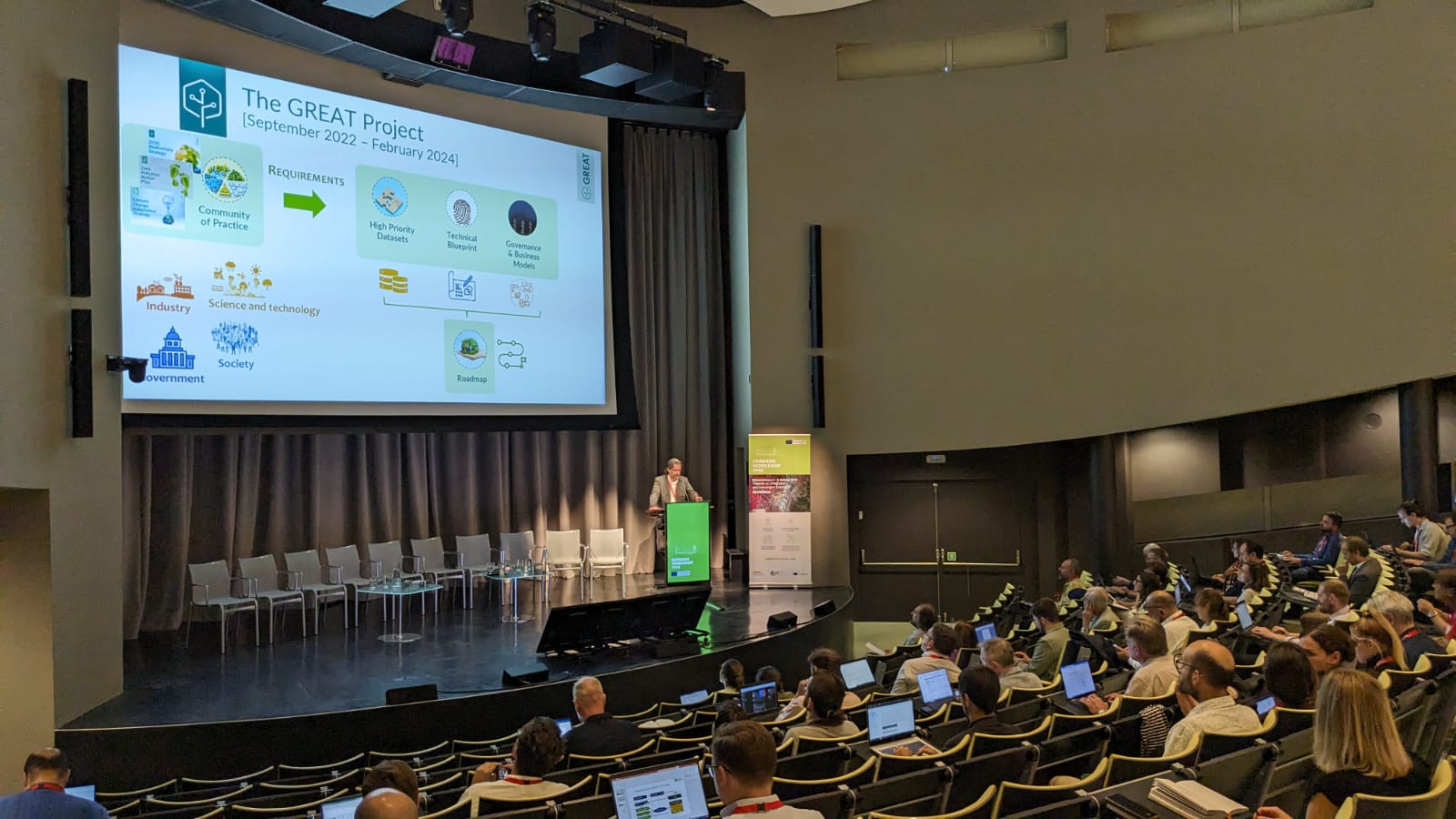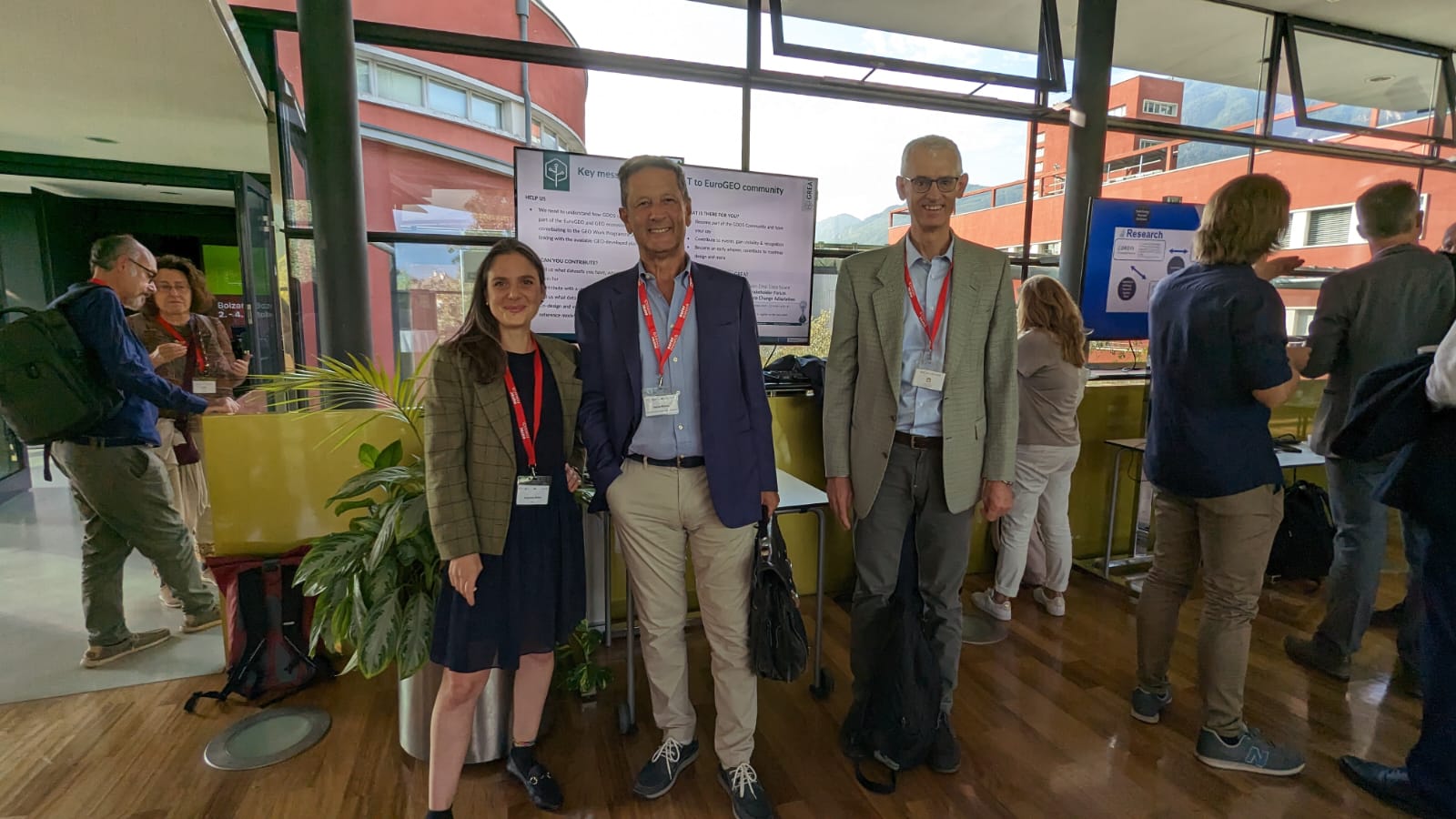Bolzano, Italy, has hosted the EuroGEO Workshop in the Eurac premises the days of 2-4 October 2023.
EuroGEO brings together and coordinates activities in Europe that contribute to the initiatives of the Group on Earth Observations (GEO). GEO is at a crossroad with defining its post-25 strategy (currently under public consultation) which is planned to be adopted in November 2023 at the GEO ministerial summit in Cape Town (ZA). The new strategy moves from “Earth observation” to “Earth Intelligence” and shifts the focus from services to equity to bridge the global information gaps.
This year’s EuroGEO workshop has provided the opportunity to position European activities in the light of the new GEO strategy and supports the coordination and interlinking of actions at national and European level and across sectors and domains to create relevant and impactful contributions to GEO.
Paolo Mazzetti (CNR) from the GREAT project and the Green Deal Data Space Action Group, chaired by Joan Maso (CREAF), have led the session “Building the Green Deal Data Space in a way that contributes to GEO” with the aim to define the way that the Green Deal Data Space can contribute to GEO, specifically:
- Understand the Green Deal Data Space via current use cases
- Consolidate the different views of the Green Deal Data Space in a blueprint
- Understand how the current blueprint can contribute to GEO in the GEO Work Program and in the GEO platform
- Discuss ideas on the GDDS governance and future plans for developing the GDDS
- Release a set of recommendations in a short policy document

The Green Deal Data Space Action Group session gathers the majority of the GREAT sister projects: all the Green Deal Data Space projects funded under the Digital Europe Programme (GREAT) and the Horizon Europe Programme (AD4GD, Fairicube, Usage, B3) have potential for the benefit of the EuroGEO community.
The GREAT technical blueprint explicitly aims at reducing the fragmentation of the data sharing landscape in Europe. The Horizon Europe projects focus on selected topics of interest for the European GEO communities (e.g., value and issues with datacubes for Fairicube). Also, the other projects presented in the session are addressing relevant challenges for GEO and EuroGEO (e.g., cognitive search for EIFFEL). However, the impression is that some of them need an alignment with the EuroGEO (and GEO) context and objectives to be effectively scaled up.
The three major lessons learned in the data space field are:
- The adoption of the digital ecosystem paradigm through soft architectures made of agreements and logical building blocks, addresses fragmentation and support flexibility and evolvability allowing multiple stakeholders to contribute to the growth of a data space.
- The twofold dimension of trust should be considered as fundamental in any data sharing initiative: a) ‘trust’ through compliance with policy, privacy, ethics and data sovereignty (major focus for data spaces); b) ‘trust’ as transparent generation of knowledge from open and reliable data and algorithms (major focus in GEO for open data and open knowledge)
- Governance is as much important as technology for data sharing and it should be considered as part of the design.
Find the recording of the entire session here:
Written by Francesca Piatto, EARSC

